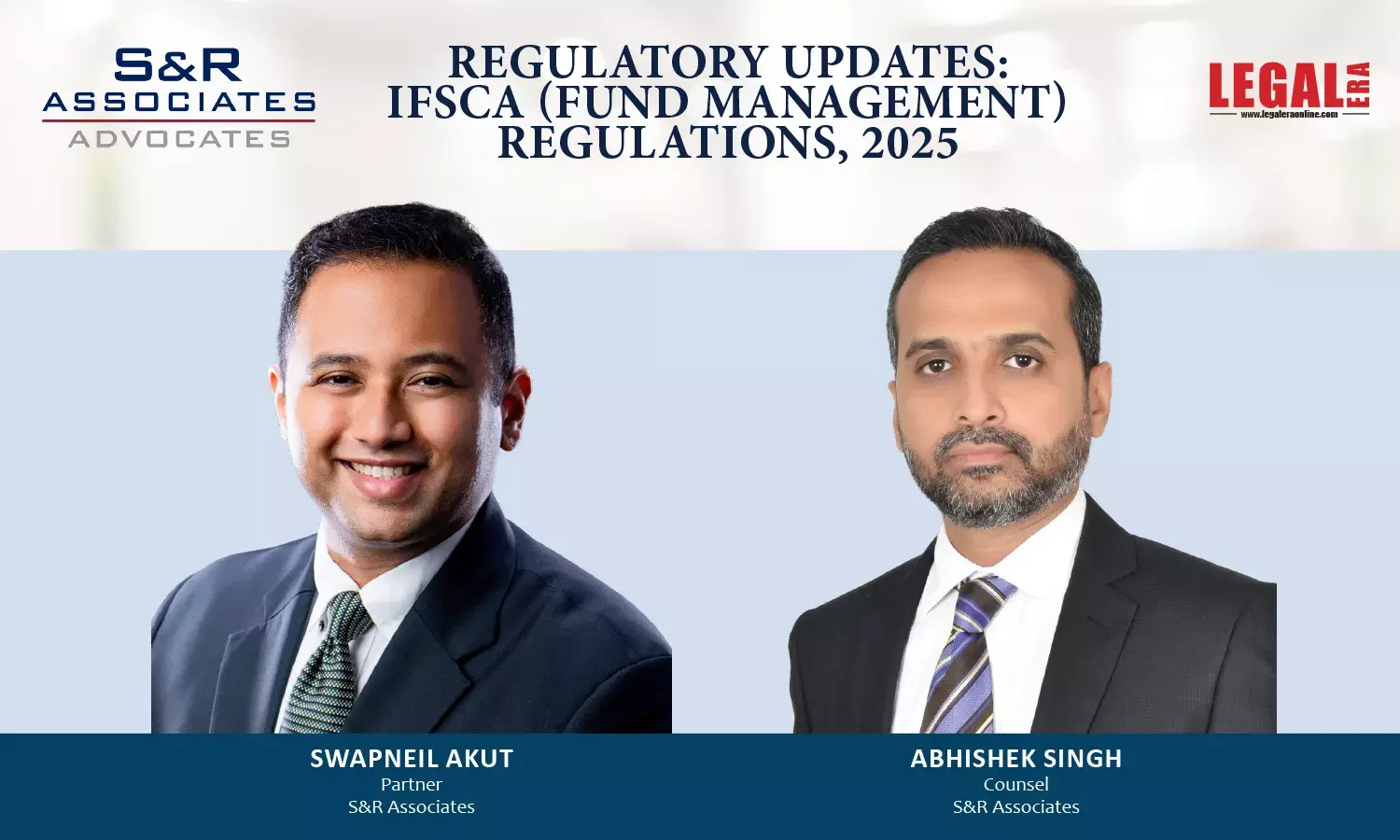Regulatory Updates: IFSCA (Fund Management) Regulations, 2025
IFSCA has introduced the Fund Management Regulations, 2025 to streamline operations, boost investor participation, and enhance regulatory flexibility for fund managers in GIFT-IFSC. Key changes include lower corpus thresholds, relaxed manpower rules, and broader investment options.;

Regulatory Updates: IFSCA (Fund Management) Regulations, 2025
OVERVIEW
Fund management activities in GIFT International Financial Services Centre (“GIFT-IFSC”) are regulated by the International Financial Services Centres Authority (“IFSCA”). To facilitate various fund management activities, IFSCA notified the IFSCA (Fund Management) Regulations, 2022 (“FM Regulations”) in April 2022, which came into effect in May 2022. These regulations unified fund management activities under a single regulatory framework, enabling engagement with a single financial regulator.
GROWTH OF GIFT-IFSC FUND MANAGEMENT INDUSTRY
The GIFT-IFSC fund management industry has experienced growth in recent years. According to statistics available on the IFSCA website, as of September 30, 2024, there are:
- 128 fund management entities (“FMEs”) are registered with IFSCA.
- 168 schemes have been launched, targeting a corpus of USD 12.13 billion.
- USD 5.58 billion has been raised, and USD 4.61 billion has been invested.
OBJECTIVE OF FM REGULATIONS 2025
Aligned with the Government of India’s goal of fostering a business-friendly environment and IFSCA’s commitment to establishing GIFT-IFSC as a global hub for international financial activities, IFSCA initiated a review of the existing FM Regulations. Following this review, IFSCA notified the IFSCA (Fund Management) Regulations, 2025 (“FM Regulations 2025”) on February 19, 2025. Below are some of the key changes introduced.
CHANGES IN NON-RETAIL SCHEMES (VENTURE CAPITAL & RESTRICTED SCHEMES)
Reduction in minimum corpus size and PPM validity
- The minimum corpus size has been reduced from USD 5 million to USD 3 million to support smaller-sized schemes and align with global regulatory benchmarks.
- •The validity of the Private Placement Memorandum (“PPM”) has been extended from six (6) months to twelve (12) months, providing FMEs with more time to operationalize their schemes.
These changes aim to enhance ease of doing business for FMEs. The reduced minimum corpus size will encourage fund managers to launch smaller schemes while maintaining globally regulatory alignment. Additionally, extending the PPM validity period provides FMEs with more time to operationalize their schemes, eliminating the need to refile documents with IFSCA and thereby reducing administrative burden and costs.

Joint investor concept
- Multiple investors can now act as joint investors, provided each meets the minimum investment requirement.
- If joint investors (maximum of two) are spouses, parents, or children, they may aggregate their investments to meet the minimum applicable threshold.
This change is intended to increase investor participation in the schemes launched by FMEs.
Stricter approval for inter-scheme transfers
Transfers of securities within schemes or with associates of FMEs and major investors (holding at least 50% of the scheme’s corpus) now require prior approval from 75% of investors (by value).
CHANGES IN RETAIL SCHEMES
Relaxation in ‘sound track record’ requirement
- The fund management experience of other entities within the FME’s group can now be considered.
- If an FME does not meet the Assets Under Management (“AUM”) and number of investors experience criteria, the experience of significant shareholders will be evaluated, with a higher net worth requirement for the FME.
Reduction in minimum corpus size
The minimum corpus for retail schemes has been reduced from USD 5 million to USD 3 million, aligning with non-retail schemes.
MANPOWER REQUIREMENTS
Enhanced manpower requirements for large FMEs
FMEs managing an AUM of at least USD 1 billion (excluding fund-of-funds schemes) must appoint an additional Key Managerial Personnel (KMP) within six (6) months from the end of the financial year.
This requirement addresses the increased operational risks associated with a growing AUM. By setting a high threshold, the regulation ensures that small and medium-sized FMEs are not unnecessarily burdened while ensuring adequate staffing for larger operations.
Flexibility in KMP requirements for retail FMEs
A registered FME (Retail) can appoint a third KMP before launching retail-oriented products, optimizing resource allocation and reducing costs.
Expanded eligibility for KMPs
- The postgraduate diploma requirement has been reduced from two (2) years to one (1) year.
- Experience as an investment banker or with a credit rating agency now qualifies for KMP eligibility.
These changes broaden the talent pool for FMEs, making it easier to recruit qualified professionals.
New certification requirement for employees
Employees of FMEs must obtain certifications from IFSCA-specified institutions to stay updated on regulatory changes and global best practices.
OTHER KEY REGULATORY CHANGES
‘Fit and proper’ criteria
Two key changes have been made:
- A pending charge sheet filed by an Indian enforcement agency for economic offenses is now a disqualifying factor.
- Previously, individuals restrained, prohibited, or debarred from financial markets under securities laws had to wait three (3) years after the restriction period ended before re-entering IFSC activities. This restriction has now been removed, ensuring fairer access without unnecessary delays beyond the specified prohibition period.
Lower investment threshold for portfolio management services
The minimum investment threshold under portfolio management services has been reduced from USD 150,000 to USD 75,000 to attract more investors.
Expanded investment options for non-retail and retail schemes
Non-Retail and Retail Schemes can now park funds in bank deposits and overnight schemes, in addition to existing permitted financial instruments.
CONCLUSION
The FM Regulations 2025 introduce investor-friendly measures, reduced entry barriers, and increased operational flexibility, supporting the continued growth of GIFT-IFSC’s fund management industry. While easing compliance for FMEs, the new regulations also implement stronger safeguards for investor protection, marking a positive step in GIFT-IFSC’s evolution as a global financial hub.

